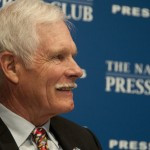Joe Dominguez

Joe Dominguez- “We make a dying at work so we can live it up on the weekend.”
Stop trying to impress other people. Other people are probably so busy trying to impress you that they will, at best, not notice your efforts. At worst, they will resent you for one-upping them.
Joe Dominguez
We build our working lives on this myth of more. Our expectation is to make more money as the years go on. We will get more responsibility and more perks as we move up in our field. Eventually, we hope, we will have more possessions, more prestige and more respect from our community. We become habituated to expecting ever more of ourselves and ever more from the world, but rather than satisfaction, our experience is that the more we have, the more we want— and the less content we are with the status quo.
Joe Dominguez
We make a dying at work so we can live it up on the weekend.
Joe Dominguez
We no longer live life. We consume it.
Joe Dominguez
It is easier to tell our therapist about our sex life than it is to tell our accountant about our finances.
Joe Dominguez
If you live for having it all, what you have is never enough.
Joe Dominguez
To live within your means is to buy only what you can prudently afford, to avoid debt unless you have assurance that you will be able to pay it promptly, and always to have something put away for a rainy day. It was quite a fashionable way to live one short generation ago, before we started living beyond our means. There are two sides to the coin of living beyond your means. The shiny side is that you can have everything you want right now. The tarnished side is that you will pay for it with your life.
Joe Dominguez
Americans used to be “citizens.” Now we are ‘consumers.
Joe Dominguez
Living within your means suggests that you wait until you have the money before you buy something. This gives you the benefit of avoiding interest charges. It also gives you a waiting period during which you may well discover that you don´t want some of those things after all. He who hesitates saves money. The bright side of living within your means is that you will use and enjoy what you have and harvest a full measure of fulfillment from it, whether it´s your old car, your old coat, or your old house. It also means you can weather the economic bad times when they come— which they will.
Joe Dominguez
Waste lies not in the number of possessions but in the failure to enjoy them.
Joe Dominguez
If you live for having it all, what you have is never enough. In an environment of more is better, “enough” is like the horizon − always receding. You lose the ability to identify that point of sufficiency at which you can choose to stop.
Joe Dominguez
We don’t ponder, “To consume or not to consume, that is the question”.
Joe Dominguez
Respect the life energy you are putting into your job. Money is simply something you trade your life energy for. Trade it with purpose and integrity for increased earnings. Ask yourself: Am I making a living or making a dying?
Joe Dominguez
Most clutter enters our lives through the “more is better” door. It comes from the disease of materialism, of looking for inner fulfillment in outer possessions.
Joe Dominguez
While economic realities may at times be harsh, it is also the nature of the human mind to make real the thoughts and beliefs that we hold (a fact that should encourage great care in how we think about ourselves). If you see yourself as a victim, you may well be too busy feeling sorry for yourself to notice the many opportunities to change your dismal destiny.
Joe Dominguez
…not only are most people habitually unhappy, but they can be unhappy no matter how much money they make.
Joe Dominguez
What is fulfillment? Whether in the sense of accomplishing a goal or enjoying a moment of real contentment, fulfillment is that experience of deep satisfaction when you can say, Aaahh… that was a delicious meal, a job well done or a purchase worth the money. To find fulfillment, though, you need to know what you are looking for. It´s fairly easy to know what fulfillment is in terms of food or other temporary pleasures. But to have fulfillment in the larger sense, to have a fulfilled life, you need to have a sense of purpose, a dream of what a good life might be.
Joe Dominguez
It’s a one-way trip from the earth to the factory to the store to our house to the dump.
Joe Dominguez
Perhaps we cling to our affluence— even though it isn´t working for us or the planet— because of the very nature of our relationship with money. As we shall see, money has become the movie screen on which our lives play out. We project onto money the capacity to fulfill our fantasies, allay our fears, soothe our pain, and send us soaring to the heights. In fact, we moderns meet most of our needs, wants, and desires through money. We buy everything from hope to happiness. We no longer live life. We consume it.
Joe Dominguez
Instead of leisure being relaxed activity, it was transformed into an opportunity for increased consumption- even consumption of leisure itself (as in travel and vacations).
Joe Dominguez
This [tracking your spending] is not about following our (or anyone else´s) budgets, with standardized categories and a suggested percentage of income that should go toward each category. This is not about swearing at the beginning of each month that you´ll do better. This is not about guilt. It´s about identifying, for yourself, what you need as opposed to what you want, what purchases or types of purchases actually bring you fulfillment, what represents “enough” to you and what you actually spend money on.
Joe Dominguez
This shift has arrived none too soon. Americans need to transform the way they think about, spend and save money–if only for their own security. The savings rate in the United States has dropped from just below 5 percent when the book was first published to below zero at the time of this writing. The sirens of consumerism have but us into a deep sleep. The apparent deep pockets of Uncle Credit Card allow us to indulge in living far beyond our means. According to a 1997 Public Agenda report, nearly 40 percent of Baby Boomers have less than $10,000 saved for retirement. The old norm of increasing savings in the good times to offset the inevitable fallow years has been reversed. Overspending increased during the economic expansion of the ’90s. It was this head-in-the-sand attitude about savings that most concerned Joe in the years before he died in 1997. Drenched for decades in information about the national and global economic ups and downs, he found Americans myopic about the long cycles of the markets and economy.
Joe Dominguez

























